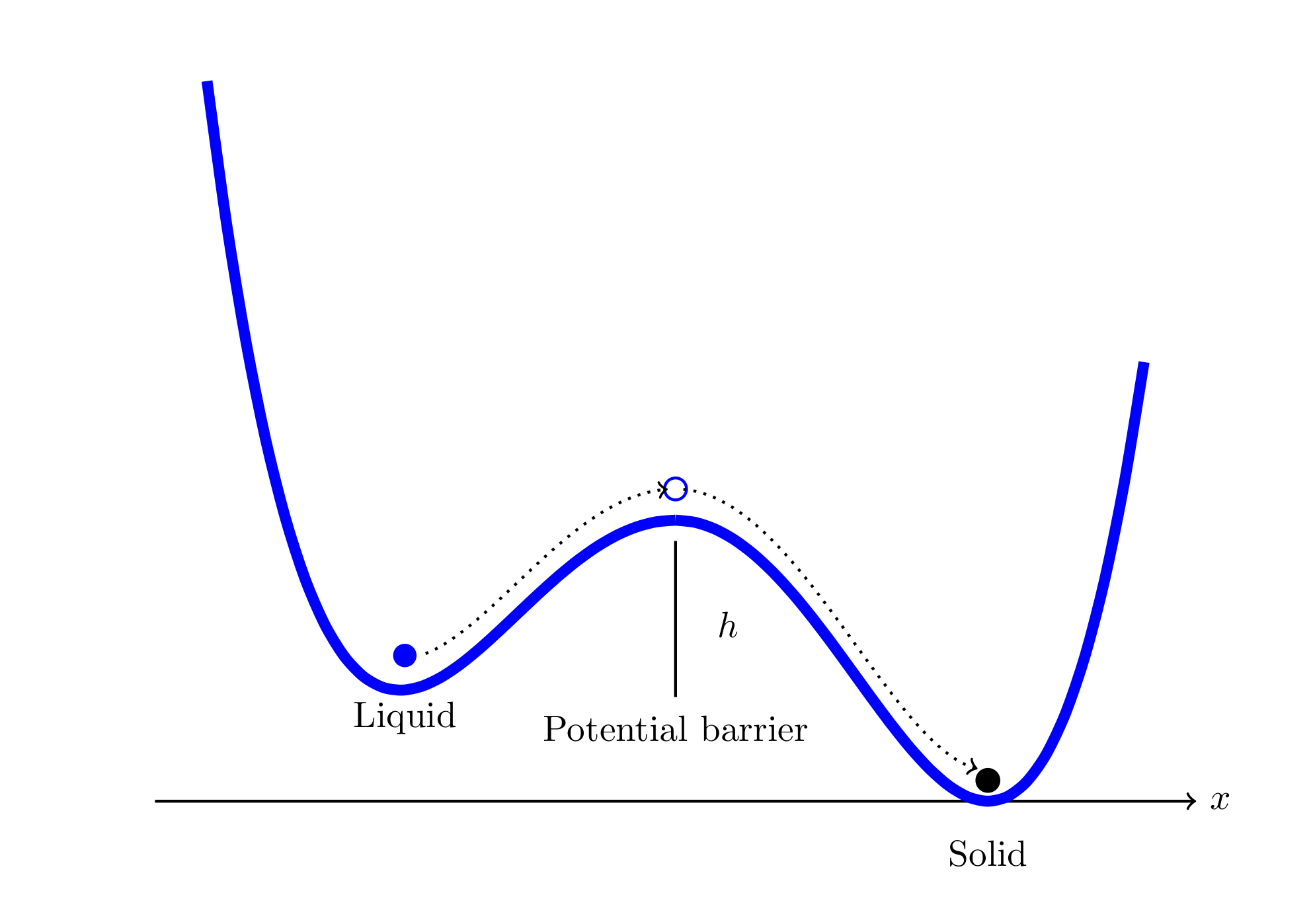Description
Did you know you can prepare supercool fluids in your kitchen? The experiment is crystal clear and is sometimes mentioned in informal conversations. Take a bottle of pure water (other liquids might not work equaly well) and cool it down to roughly \(-5^o\)C (minus five degrees Celsius), but don't let it freeze (yes, it is possible!). Remove the bottle gently from the cold environment carefully and hit it against a rigid surface. If you are lucky, you will see, in a matter of seconds, supercool liquid water transition beautifully into ice. What just happened?
You have just seen a Metastable transition!
In a couple of words, for pure undisturbed water near \(0^o\)C, the process of freezing depends on the formation of a first crystal of water (nucleation) to be triggered. This nucleation event depends on a geometrical alignment atoms and bonding thereof that is sufficiently strong to propagate to the system, see the figure bellow for a illustration of what happened.
Behind such phenomena, there is a deep and fascinating mathematical theory, that relates the study of rare events and interacting particle systems . The goal of this project is to explain this type of phenomena.
Along the way we will see that there are different approaches to follow:
- The pathwise approach (Olivieri-Vares),
- The potential-theoretic approach (Bovier-den Hollander),
- The martingale approach (Landim).
You will have ample freedom to investigate the topic of your preference and to explore numerical aspects of phase transition.
